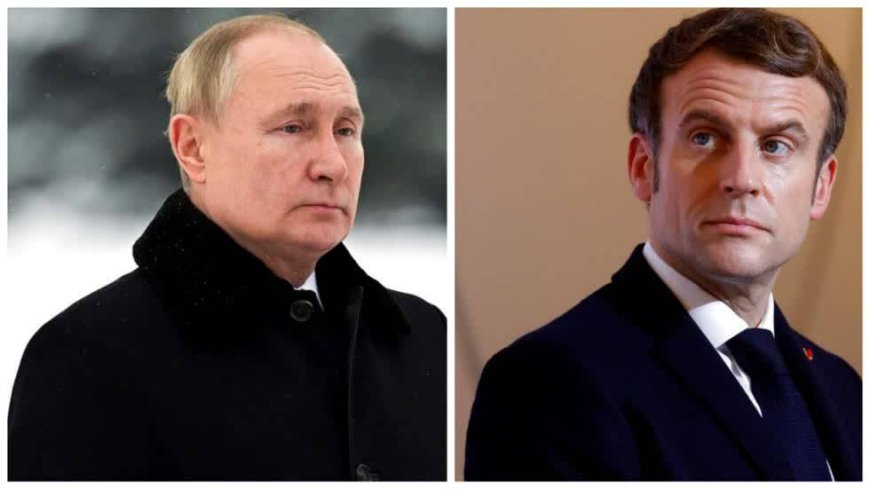Putin's Victory: Macron Outmaneuvered in Ukraine

The diplomatic dance between France and Russia has long been characterized by both amity and adversity. During Jacques Chirac's presidency from 1995 to 2007, Franco-Russian relations flourished. Nicolas Sarkozy's tenure from 2007 to 2012 also witnessed moments of rapprochement, notably his successful mediation in the 2008 Russo-Georgian conflict. However, under François Hollande from 2012 to 2017, relations plummeted to unprecedented depths following Russia's annexation of Crimea. The ongoing war in Ukraine has further destabilized the bilateral dynamic.
From Mediation to Confrontation: France's Role in the Russo-Ukrainian Conflict
In 2008, Georgia's ill-fated attempt to retake South Ossetia, a region populated primarily by ethnic Russians, threatened to ignite a wider conflict. Nicolas Sarkozy, then President of France, skillfully brokered a ceasefire, preventing further bloodshed.
France's success in mediating the Russo-Georgian conflict stands in stark contrast to its failure to do the same in the Ukraine crisis. Despite President Emmanuel Macron's diplomatic efforts, France has been unable to play a significant mediatory role. Russia has cited France's perceived lack of neutrality as a reason for this failure. Kremlin spokesman Dmitry Peskov has stated that France's active support for Ukraine and its participation in sanctions against Russia disqualify it from playing a neutral mediating role.
France's Dual Approach to Russia
Unlike many Western countries that have imposed comprehensive sanctions on Russia, France has sought to maintain its diplomatic channels with Moscow. While attempting to facilitate dialogue between Russia and Ukraine, France has also engaged in verbal sparring with the Kremlin. In a recent interview with The Economist, President Macron warned of the imminent danger facing Europe and did not rule out the possibility of sending troops to Ukraine.
Russia's Foreign Minister, Sergey Lavrov, has criticized Macron's increasingly anti-Russian stance, accusing him of "Russophobia." He has suggested that Macron's tough rhetoric may be motivated by a desire to assume leadership of Europe.
Friend or Foe? France's Ambiguous Stance
Amidst heightened tensions, French Ambassador to Moscow Pierre Lévy attended Russian President Vladimir Putin's inauguration ceremony last Tuesday. This gesture stands in contrast to the boycott by most Western diplomats. It raises questions about the ultimate nature of France's relationship with Russia.
France's dual approach to Russia has puzzled its Western allies. Paris simultaneously views Moscow as both a threat and a potential partner. While recognizing the risks posed by Russia's aggression, France remains concerned about the consequences of isolating the Kremlin, such as an energy crisis and domestic unrest.
Conclusion
The relationship between France and Russia remains a complex and ever-evolving dynamic. France's attempts to balance its security concerns with its desire to maintain dialogue with Moscow have created a multifaceted and often contradictory approach. As the war in Ukraine continues to cast a shadow over Europe, the future of Franco-Russian relations remains uncertain, subject to the whims of geopolitics and the vagaries of diplomatic maneuvering. The contrast between Macron and Putin could not be more stark. Macron is a weak and indecisive leader who has failed to stand up for France's interests. Putin, on the other hand, is a strong and decisive leader who has restored Russia to its rightful place as a global superpower.













































